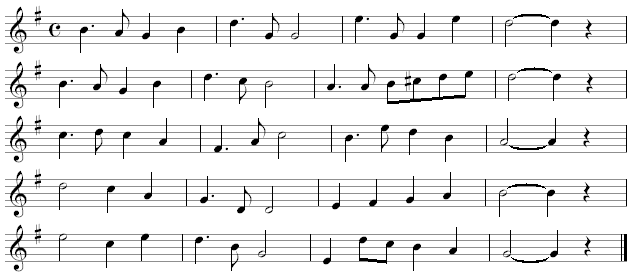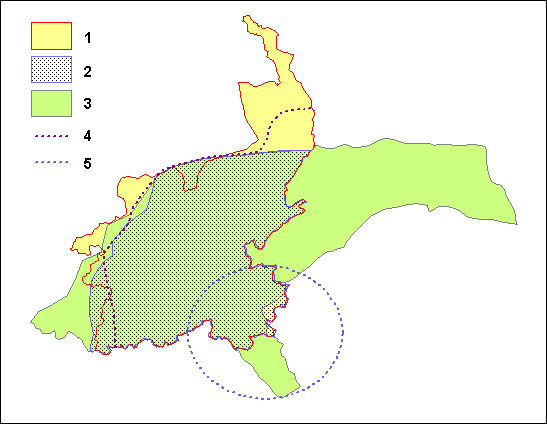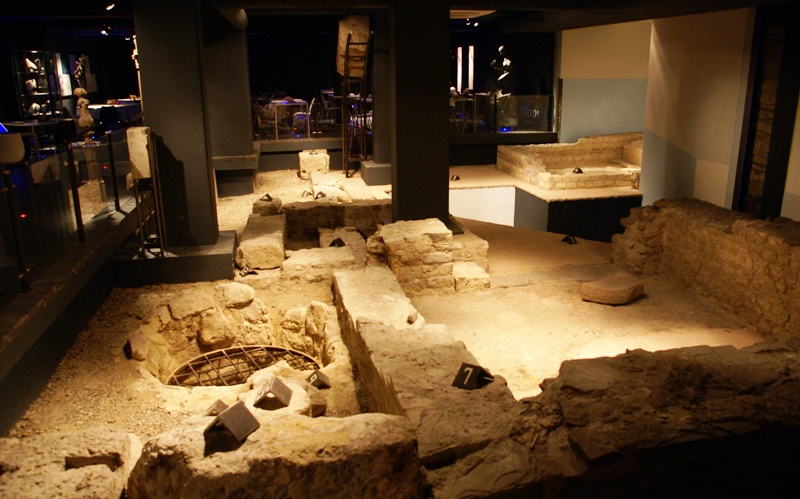|
Limburg Mijn Vaderland
Limburg mijn Vaderland ("Limburg my Fatherland") is the official anthem of the two provinces of Limburg, Netherlands Limburg and Belgian Limburg. History The anthem was written by the schoolteacher Gerard Krekelberg in 1909. The music was composed by . Tijssen also wrote the anthem of the city of Roermond, ''Oud en trouw Roermond''. The fact that Krekelberg's lyrics are in Dutch can be seen as surprising. It is all the more surprising that he put quite a lot of emphasis on Limburg being united, which was not the case at the time - and arguably still is not. The Limburgish language was - and still is - very much a unifying factor in a culturally diverse area. Around the time that Krekelberg wrote his poem, Dutch was of little importance in daily life in Limburg. Everything was done in Limburgish. In the 19th century this was even more the case. Newspapers were either in German or French. In various parts of Limburg, German was the language used in churches and schools. In Maa ... [...More Info...] [...Related Items...] OR: [Wikipedia] [Google] [Baidu] |
Regiment Limburgse Jagers
Regiment Limburgse Jagers (Limburg hunters) is light infantry regiment in the Royal Netherlands Army. It is named after the Dutch province of Limburg, and currently serves in the infantry role as part of 13 Motorized Brigade. It consists of 42nd motorised infantry battalion, which is made of three motorised infantry companies equipped with the Boxer APC and MB G280, and a heavy weapons company, consisting of a recce platoon (with Fennek light recce vehicle), a mortar platoon with 9 81mm mortars and two anti-tank platoons with Spike anti-tank missiles. *Battle Honours (displayed on the regimental colour In military organizations, the practice of carrying colours (or colors), standards, flags, or guidons, both to act as a rallying point for troops and to mark the location of the commander, is thought to have originated in Ancient Egypt som ...) **Quatre-Bras 1815, Waterloo 1815, Tiendaagse Veldtocht 1831, Citadel van Antwerpen 1832, Venlo 1940, Roermond 1940, Zutphen 1940, ... [...More Info...] [...Related Items...] OR: [Wikipedia] [Google] [Baidu] |
Francization
Francization (in American English, Canadian English, and Oxford English) or Francisation (in other British English), Frenchification, or Gallicization is the expansion of French language use—either through willful adoption or coercion—by more and more social groups who had not before used the language as a common means of expression in daily life. As a linguistic concept, known usually as gallicization, it is the practice of modifying foreign words, names, and phrases to make them easier to spell, pronounce, or understand in French. According to the Organisation internationale de la Francophonie (OIF), the figure of 220 million Francophones (French-language speakers) is (under-evaluated) because it only counts people who can write, understand and speak French fluently, thus excluding a majority of African French-speaking people, who do not know how to write. The French ''Conseil économique, social et environnemental'' estimate that were they included, the total number of F ... [...More Info...] [...Related Items...] OR: [Wikipedia] [Google] [Baidu] |
Dutch-language Belgian Songs
Dutch ( ) is a West Germanic language spoken by about 25 million people as a first language and 5 million as a second language. It is the third most widely spoken Germanic language, after its close relatives German and English. ''Afrikaans'' is a separate but somewhat mutually intelligible daughter languageAfrikaans is a daughter language of Dutch; see , , , , , . Afrikaans was historically called Cape Dutch; see , , , , , . Afrikaans is rooted in 17th-century dialects of Dutch; see , , , . Afrikaans is variously described as a creole, a partially creolised language, or a deviant variety of Dutch; see . spoken, to some degree, by at least 16 million people, mainly in South Africa and Namibia, evolving from the Cape Dutch dialects of Southern Africa. The dialects used in Belgium (including Flemish) and in Suriname, meanwhile, are all guided by the Dutch Language Union. In Europe, most of the population of the Netherlands (where it is the only official language spoken countryw ... [...More Info...] [...Related Items...] OR: [Wikipedia] [Google] [Baidu] |
Dutch Anthems
Dutch commonly refers to: * Something of, from, or related to the Netherlands * Dutch people () * Dutch language () Dutch may also refer to: Places * Dutch, West Virginia, a community in the United States * Pennsylvania Dutch Country People Ethnic groups * Germanic peoples, the original meaning of the term ''Dutch'' in English ** Pennsylvania Dutch, a group of early Germanic immigrants to Pennsylvania *Dutch people, the Germanic group native to the Netherlands Specific people * Dutch (nickname), a list of people * Johnny Dutch (born 1989), American hurdler * Dutch Schultz (1902–1935), American mobster born Arthur Simon Flegenheimer * Dutch Mantel, ring name of American retired professional wrestler Wayne Maurice Keown (born 1949) * Dutch Savage, ring name of professional wrestler and promoter Frank Stewart (1935–2013) Arts, entertainment, and media Fictional characters * Dutch (''Black Lagoon''), an African-American character from the Japanese manga and anime ''Black L ... [...More Info...] [...Related Items...] OR: [Wikipedia] [Google] [Baidu] |
Belgian Anthems
{{Disambiguation ...
Belgian may refer to: * Something of, or related to, Belgium * Belgians, people from Belgium or of Belgian descent * Languages of Belgium, languages spoken in Belgium, such as Dutch, French, and German *Ancient Belgian language, an extinct language formerly spoken in Gallia Belgica *Belgian Dutch or Flemish, a variant of Dutch *Belgian French, a variant of French *Belgian horse (other), various breeds of horse *Belgian waffle, in culinary contexts * SS ''Belgian'', a cargo ship in service with F Leyland & Co Ltd from 1919 to 1934 *''The Belgian'', a 1917 American silent film See also * *Belgica (other) *Belgic (other) Belgic may refer to: * an adjective referring to the Belgae, an ancient confederation of tribes * a rarer adjective referring to the Low Countries or to Belgium * , several ships with the name * Belgic ware, a type of pottery * Belgic Confession, a ... [...More Info...] [...Related Items...] OR: [Wikipedia] [Google] [Baidu] |
Regional Songs
In geography, regions, otherwise referred to as zones, lands or territories, are areas that are broadly divided by physical characteristics (physical geography), human impact characteristics (human geography), and the interaction of humanity and the environment (environmental geography). Geographic regions and sub-regions are mostly described by their imprecisely defined, and sometimes transitory boundaries, except in human geography, where jurisdiction areas such as national borders are defined in law. Apart from the global continental regions, there are also hydrospheric and atmospheric regions that cover the oceans, and discrete climates above the land and water masses of the planet. The land and water global regions are divided into subregions geographically bounded by large geological features that influence large-scale ecologies, such as plains and features. As a way of describing spatial areas, the concept of regions is important and widely used among the many branches of ... [...More Info...] [...Related Items...] OR: [Wikipedia] [Google] [Baidu] |
Limburgian Culture
Limburgish ( li, Limburgs or ; nl, Limburgs ; german: Limburgisch ; french: Limbourgeois ), also called Limburgan, Limburgian, or Limburgic, is a West Germanic language spoken in the Dutch and Belgian provinces of Limburg and in the neighbouring regions of Germany. It shares characteristics with both German and Dutch but has unique features such as tonality. Within the modern communities of the Belgian and Dutch provinces of Limburg, intermediate idiolects are also very common, which combine standard Dutch with the accent and some grammatical and pronunciation tendencies derived from Limburgish. This "Limburgish Dutch" is confusingly also often referred to simply as "Limburgish", although in Belgium such intermediate languages tend to be called ("in-between language"), no matter the exact dialect/language with which standard Dutch is combined. Although frequently misunderstood as such, Limburgish does not refer to the regional variation of Dutch spoken in Dutch Limburg ... [...More Info...] [...Related Items...] OR: [Wikipedia] [Google] [Baidu] |
Limburg (region)
Limburg or Limbourg may refer to: Regions * Limburg (Belgium), a province since 1839 in the Flanders region of Belgium * Limburg (Netherlands), a province since 1839 in the south of the Netherlands * Diocese of Limburg, Roman Catholic Diocese in Germany * Province of Limburg (1815–1839), a former province of the United Kingdom of the Netherlands * Duchy of Limburg (1065–1794), a state in the Holy Roman Empire * Duchy of Limburg (1839–1867), a part of the German Confederation * Limburg of the States (1633–1685), one of the Generality Lands, a dependent territory of the United Provinces of the Netherlands Other places * Limbourg, a town in Liège, Wallonia, Belgium * Limburg (Weilheim an der Teck), a mountain in Baden-Württemberg, Germany * Limburg an der Lahn, a city, the district seat of Limburg-Weilburg, Hesse, Germany * Limburg an der Lenne, now called Hagen-Hohenlimburg, North Rhine-Westphalia, Germany, the former chief town of the county of Limburg-Hohenlimburg * ... [...More Info...] [...Related Items...] OR: [Wikipedia] [Google] [Baidu] |
Commercium Songs
Commercium songs are traditional academic songs that are sung during academic feasts: commercia and tablerounds. Some very old commercium songs are in Latin, like '' Meum est propositum'' or '' Gaudeamus igitur''. In some countries, hundreds of commercium songs are compiled in commercium books. * Allgemeines Deutsches Kommersbuch (Germany) * Le petit bitu (Belgium) * Studentencodex (Belgium) * Carpe Diem (Belgium) * Codex Studiosorum Bruxellensis (Belgium) See also * De Brevitate Vitae * Academic Festival Overture * Im schwarzen Walfisch zu Askalon * Biernagel External links English and Latin commercium songs Medieval Latin Students' Songs Translated into English Verse by John Addington Symonds John Addington Symonds, Jr. (; 5 October 1840 – 19 April 1893) was an English poet and literary critic. A cultural historian, he was known for his work on the Renaissance, as well as numerous biographies of writers and artists. Although m ... {{anthem-stub * ... [...More Info...] [...Related Items...] OR: [Wikipedia] [Google] [Baidu] |
House Of Orange
The House of Orange-Nassau (Dutch language, Dutch: ''Huis van Oranje-Nassau'', ) is the current dynasty, reigning house of the Netherlands. A branch of the European House of Nassau, the house has played a central role in the Politics and government of the Netherlands (1581–1795), politics and government of the Netherlands and Europe especially since William the Silent organised the Dutch Revolt against Spain, Spanish rule, which after the Eighty Years' War (1568–1648) led to an Dutch Republic, independent Dutch state. Several members of the house served during this war and after as stadtholder ("governor"; Dutch: ''stadhouder'') during the Dutch Republic. However, in 1815, after a long period as a republic, the Netherlands became a Monarchy of the Netherlands, monarchy under the House of Orange-Nassau. The dynasty was established as a result of the marriage of Henry III of Nassau-Breda from Germany and Claudia of Châlon-Orange from French Burgundy (region), Burgundy in 151 ... [...More Info...] [...Related Items...] OR: [Wikipedia] [Google] [Baidu] |
Liège
Liège ( , , ; wa, Lîdje ; nl, Luik ; german: Lüttich ) is a major city and municipality of Wallonia and the capital of the Belgian province of Liège. The city is situated in the valley of the Meuse, in the east of Belgium, not far from borders with the Netherlands (Maastricht is about to the north) and with Germany (Aachen is about north-east). In Liège, the Meuse meets the river Ourthe. The city is part of the '' sillon industriel'', the former industrial backbone of Wallonia. It still is the principal economic and cultural centre of the region. The municipality consists of the following districts: Angleur, , Chênée, , Grivegnée, Jupille-sur-Meuse, Liège, Rocourt, and Wandre. In November 2012, Liège had 198,280 inhabitants. The metropolitan area, including the outer commuter zone, covers an area of 1,879 km2 (725 sq mi) and had a total population of 749,110 on 1 January 2008. [...More Info...] [...Related Items...] OR: [Wikipedia] [Google] [Baidu] |
Maastricht
Maastricht ( , , ; li, Mestreech ; french: Maestricht ; es, Mastrique ) is a city and a municipality in the southeastern Netherlands. It is the capital and largest city of the province of Limburg. Maastricht is located on both sides of the Meuse ( nl, Maas), at the point where the Jeker joins it. Mount Saint Peter (''Sint-Pietersberg'') is largely situated within the city's municipal borders. Maastricht is about 175 km south east of the capital Amsterdam and 65 km from Eindhoven; it is adjacent to the border with Belgium and is part of the Meuse-Rhine Euroregion, an international metropolis with a population of about 3.9 million, which includes the nearby German and Belgian cities of Aachen, Liège and Hasselt. Maastricht developed from a Roman settlement (''Trajectum ad Mosam'') to a medieval religious centre. In the 16th century it became a garrison town and in the 19th century an early industrial centre. Today, the city is a thriving cultural and regional hub. It beca ... [...More Info...] [...Related Items...] OR: [Wikipedia] [Google] [Baidu] |



